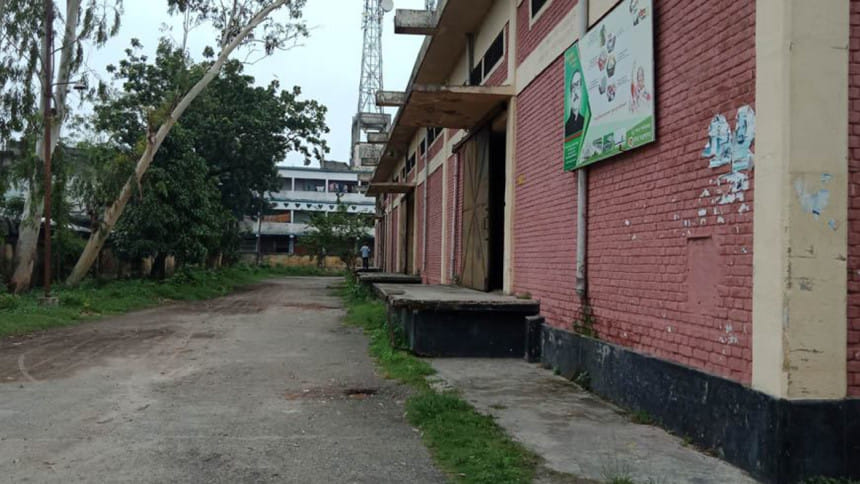Govt Rice Procurement: Drive in Pabna destined to crash

Marred by poor response from listed millers and with the closing deadline for the government's Boro rice procurement programme only a few days away, the programme is destined for a massive shortfall in target procurement this year in Pabna.
The rice procurement drive in Pabna started on May 7 and it is set to end on August 31. This year the government set a target of procuring 24,571 metric tonnes of rice from 682 listed rice mills through 11 designated procurement centres in the district.
But, as of August 15, only 9,800 tonnes, which is less than half the target, of rice was purchased at the procurement centres.
While some are pointing out that steep prices of rice, at retail markets, might be one of the reasons behind the deficit, many others are blaming it on the role of a group of rice traders and millers with vested interest.
But on whomever the blame is put, the situation might lead to a massive shortage in the food grain stock of the government, said many stakeholders.
Rice millers and traders said many of the listed millers might have felt discouraged to sell the grain to the government as the former have been able to sell it at retail markets for prices much higher than that set by the government.
But whatever the reason might be, more than a third of the listed millers have so far refrained from selling even one bag of rice to the government, according to food officials.
Iqbal Bahar, controller of food in Pabna, said over two hundred millers, most of who own large-scale rice mills and under contract with the government, did not sell a single bag of rice to the government after the drive started.
Although the food controller's office served numerous notices on them in this regard, many of the millers are yet to comply, he added.
Out of the total procurement target of 24,571 tonnes, 15,162 tonnes of rice was set to be procured from Ishwardi, an upazila considered to be the largest rice hub in the region.
Till August 15, only 6,402 tonnes of rice was procured at procurement centres in the upazila. As opposed to the paddy procurement target of 6,695 tonnes, only 582 tonnes was procured in the upazila till the same date.
Asked about the reasons behind the poor response, Fazlur Rahman Malitha, president of rice mill owners' association in the upazila, said out of all the upazilas in the northern region, they had been selling the highest amount of rice to the government.
But this year, the millers from Ishwardi have felt disappointment and thus refrained from selling rice to the government as the procurement rates set by the latter are too low -- only Tk 36 for one kilogram of rice and Tk 26 for paddy.
At retail markets, each kg of rice can be sold for more than Tk 40 against its production cost of Tk 38 to Tk 39, while a kg of paddy can be sold there for more than Tk 28. These are the main reasons that made the millers to turn away from government procurement centres, Fazlur added.
In response to the possibility of raising the rates, Iqbal Bahar, the food controller in Pabna, said there was no scope of raising the procurement rates at the moment as a market survey was conducted prior to setting those rates.
Stern action would be taken against the listed millers for their breach of contract, under which they are required to sell the produce at rates set by the government, he added.
On how to tackle a probable shortage in food grain stock of the government, he said there would be no shortage in food grain as the government might import rice if the rice procurement drive fails.

 For all latest news, follow The Daily Star's Google News channel.
For all latest news, follow The Daily Star's Google News channel. 



Comments